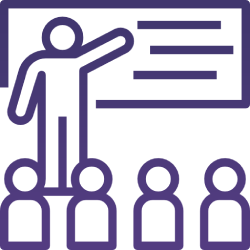Our Introduction To Python training course will teach you how to:
Our Introduction To Python training course contains the following modules:
Module 1: Python Overview
Module 2: Working with Numbers and Strings
Module 3: Collections
Module 4: Functions
Module 5: Object-Oriented Programming
Module 6: Modules
Module 7: Managing Exceptions and Files
Module 8: Accessing Relational Databases with Python
Our Introduction To Python training course appeals to a diverse range of individuals with different backgrounds and interests. Including but limited to:
Our three-day Introduction To Python Training Course includes the following:
Our Introduction To Python training course requires the following Prerequisites:
There is no recommended reading for our Introduction To Python training course but the following reading materials may provide some help:
Introduction To Python Exam:
You might enjoy our three-day Introduction To SQL training course.
Learning Python offers numerous benefits, which contribute to its widespread popularity among programmers and professionals across various fields. Here are some of the key benefits of learning Python:

All of our trainers have achieved exceptionally high delegate pass rates for accredited examinations for all our courses. We also offer complimentary pre and post-course support for any questions you may have.

We try and be as flexible as we can and accommodate your needs. We can swap delegates at any time with no charge. We can also create bespoke content should this be required.

We specialise in IT Service and Project Management. All of our Trainers and Consultants have considerable years of hands-on experience in IT Service / Project Management, working across a wide number of industry sectors.

Our training, sales and admin staff are all professional, helpful, friendly and approachable. We believe in providing excellent customer service. You will always have a dedicated friendly Account Manager
INFORMATION
There are currently no course dates that match your selected filter options. Please try another filter or contact one of our dedicated account managers on +44(0)1539 736 828 to discuss your requirements. Thanks.
The duration of our Introduction To Python training course is three-days.